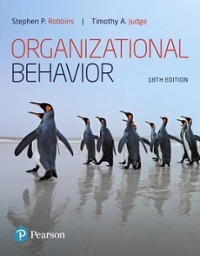When it is time for groups to reach a decision, many turn to consensus. Consensus, a situation
Question:
When it is time for groups to reach a decision, many turn to consensus. Consensus, a situation of agreement, seems like a good idea. To achieve consensus, groups must cooperate and collaborate, which ultimately produces higher levels of camaraderie and trust. In addition, if everyone agrees, the prevailing wisdom says that everyone will be more committed to the decision.
However, the need for consensus can sometimes be detrimental to group functioning. Consider the “fiscal cliff” faced by the U.S. government toward the end of 2012. The White House and Congress needed to reach a deal that would reduce the swelling budget deficit. However, many Republicans and Democrats stuck to their party lines, refusing to compromise. Many viewed the end product that achieved consensus as a less-than-optimal solution. The public gave Congress an approval rating of only 13 percent, expressing frustration with the lack of compromise, but the group may not have been able to function well partly because of the need for consensus in the face of partisanship.
If consensus is reached, does that mean the decision is the right one? Critics of consensus-based methods argue that any decisions ultimately reached are inferior to decisions using other methods such as voting or having team members provide input to their leader, who then makes the final decision. Critics also argue that, because of pressures to conform, groupthink is much more likely, and decisions reached through consensus are simply those everyone dislikes the least.
Questions
1. Is consensus a good way for groups to make decisions? Why or why not?
2. Can you think of a time when a group of which you were a part relied on consensus? How do you think the decision turned out?
3. Martin Luther King Jr. once proclaimed, “A genuine leader is not a seeker of consensus but a modeler of consensus.” What do you think he meant by that statement? Do you agree with it? Why or why not?
Step by Step Answer:

Organizational Behavior
ISBN: 9780134729329
18th Edition
Authors: Stephen RobbinsTimothy JudgeTimothy Judge, Timothy Judge





